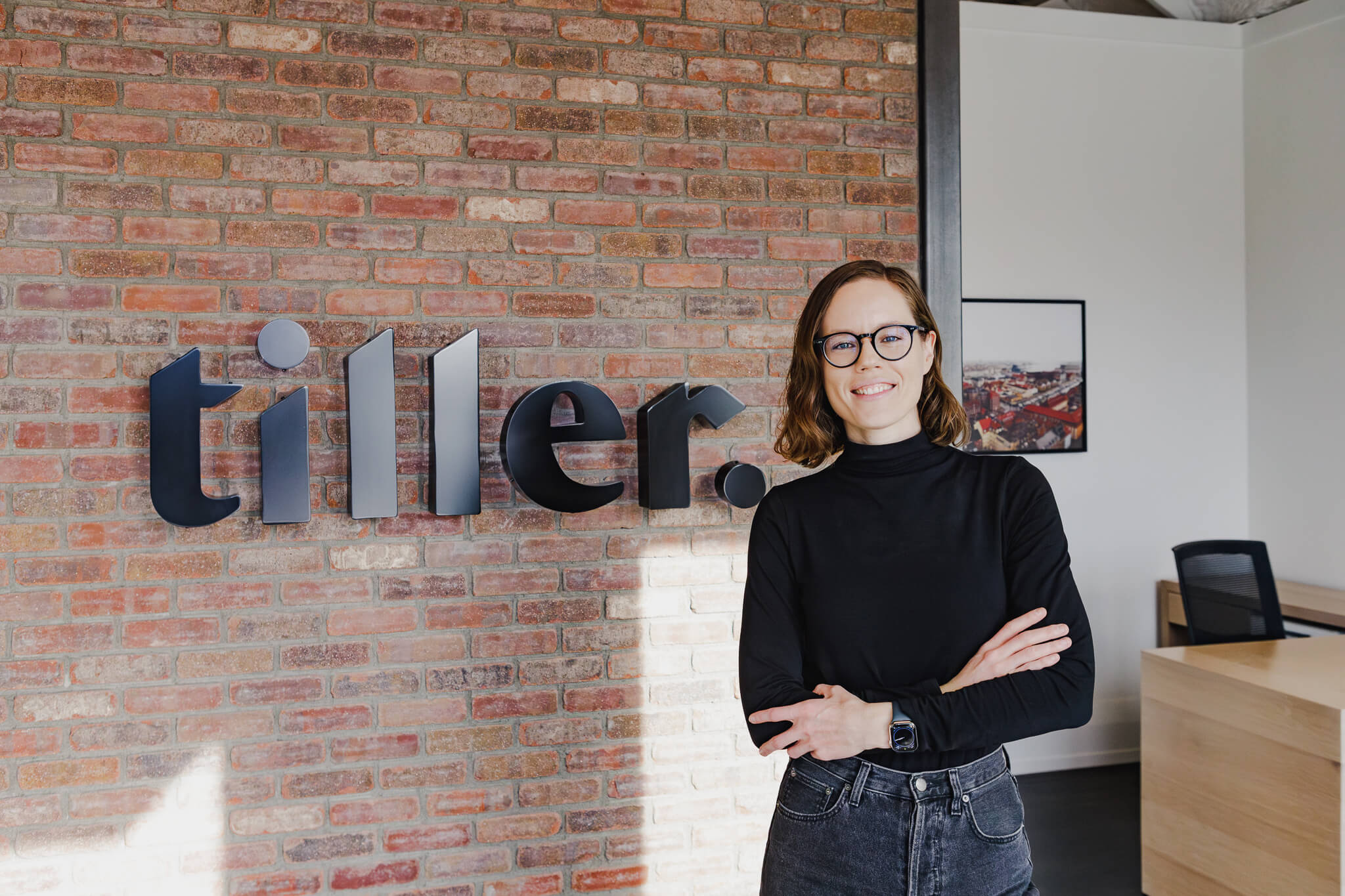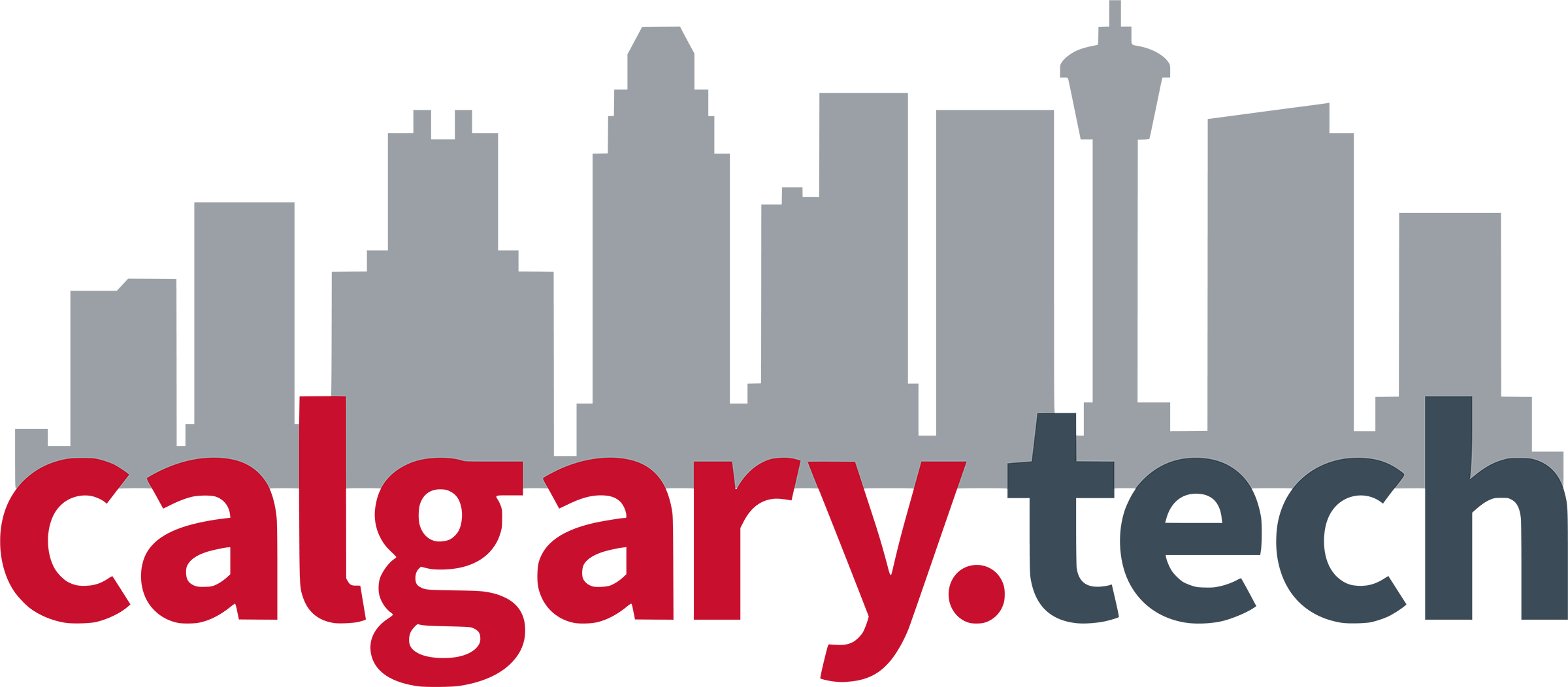
What began as a youngster selling soda cans at her father’s local golf course sparked the entrepreneurial journey behind one of Canada’s most innovative, tech-focused web and brand agencies.
Chantelle Little knew she loved entrepreneurship well before she understood anything about brand, SaaS or the technology sector. From her days selling sodas as a kid for extra pocket change while tagging along with her dad for 18 rounds, to launching a full-scale agency before graduating, the Calgary-based founder is in her element when she’s solving problems for people and scaling businesses to new heights.
Thirsty golfers meant a market opportunity on the fairway, and while Chantelle loved to hit 18, she was also hooked on another game: successfully propelling businesses into the green by disrupting traditional playbooks.
In 2008, Chantelle was in the midst of a Bachelor’s Degree in Business Administration, when she found herself almost accidentally launching what would become a full-scale agency from the confines of her parent’s Calgary loft.
Spurred on by the entrepreneurial glimmer of her youth, startup funds leveraged from a university scholarship, and the ambition to change the way video content and branding agencies deliver, the then 19-year-old launched what would become one of North America’s few SaaS, and software-focused, B2B brand agencies, Tiller.
Chantelle is named one of the 2023 Top 40 under 40 (Avenue Calgary), and is a EY Entrepreneur of the Year Prairies Finalist (technology category).

What inspired you to enter the world of digital marketing?
CL: I got my first taste of digital marketing during a summer job mid-way through my business degree. A health benefits company took a chance on me, and I spent a summer marketing health benefit products to HR managers. The company was small, so there were no other marketing roles. This gave me an opportunity to get hands-on experience with web, brand, and video and flex my entrepreneurial muscles.
After a month on the job, I’d found my two loves: entrepreneurship and marketing. My bosses gave me their full support when I shared that I wanted to launch my own company in parallel to finishing my 4-month contract with them. I was an employee by day, and an entrepreneur by night. It was the perfect playground to explore and learn in both roles.
I remember specifically loving the storytelling aspect of the work. Marketing is really about education and helping people make the best buying decisions for their situation. And if we, as marketers, can help to simplify complex solutions and make them relatable, we make them more accessible to the people who need them most. Who doesn’t want to help people solve problems?
Did you encounter any significant challenges while launching and building Tiller Digital? If so, how have these learning curves evolved since your company’s inception?
CL: Being an entrepreneur has been the most challenging thing I’ve ever done. There have been plenty of moments when I’ve wanted to give up, but my love for what I do, my team and my clients has motivated me through some dark times.
I often refer to entrepreneurship as the best teacher I’ve ever had. I am constantly faced with opportunities to take risks, fail, and learn. I’ve become a bit of a learning machine. In the early days, it would take me years to learn a difficult lesson because it felt like I was learning everything from scratch (which I was!). Now, with 15+ years behind me, I learn much more quickly.
I often say that a person’s ability to learn is their competitive advantage, and I believe that for myself too. The complexity of what I’m dealing with today is much greater than what I dealt with in the early days, but I’m much better equipped to handle the learning curves and to bring people along the journey with me. I don’t always get it right, but I realize it and pivot much more quickly.
As Tiller continues to grow, my role evolves, usually every 3 to 6 months. So just as I get comfortable, I am pushed outside my comfort zone again. When I embrace that discomfort, Tiller grows. As a result, I now crave being outside my comfort zone, because I know I’ll grow. And if I’m not learning and growing, I’m dying.
B2B SaaS (software-as-a-service) is a pretty niche market. What inspired you to take on this segment of tech in North America?
CL: In Tiller’s early years, we were “the agency for all”. While it was fun working for a wide range of clients, I often felt it was difficult to deliver as much value as I wanted to. I also found it difficult to scale the agency with such a wide range of clients. At times it felt like we lacked a secret sauce. While it served us for a season, I often felt the approach wouldn’t help us grow or remain competitive in the long run. And I was in it for the long run.
In 2015, we had our first opportunity to work with a B2B SaaS client out of Vancouver. I fell in love with the unique challenges software companies face. In B2B SaaS, success hinges on the web experience. CMOs and marketing teams are under huge (often unrealistic) pressure to deliver qualified leads and revenue. With this pressure, tight budgets, and often lean internal teams, they often lack the skill sets needed to fully deliver these results on their own. I saw an opportunity to evolve our services, processes, and expertise to support this specific audience.
I often asked myself, “What if we could be the CMO’s superpower?” That question still motivates me to find ways to deliver new and unexpected value. We’ve invested time, energy, and resources into evolving to serve this audience, and it’s been very fulfilling to see our clients’ relief when they realize we understand their challenges, and we’re here to help.

As your company grew and gained more clientele (specifically from the U.S.), was there any temptation to leave Calgary in search of a bigger pond south of the border?
CL: No, definitely not. While I was excited about expansion across Canada, into the U.S., and even across the pond to Europe, my heart is in Calgary. I was born in Calgary, but I moved multiple times between age 4-15, living in various locations in Canada and the U.S. When my family finally settled in Calgary, I was happy to be done with the nomad life. I’m very family oriented and there is no opportunity that could lure me away from my family. Thankfully, the global shift to digital has essentially removed borders for business. I can easily serve international markets from my favorite city in the world: Calgary.
How has artificial intelligence impacted digital marketing, and how can Albertan tech companies benefit from adopting AI in their business strategies?
CL: Although we’re still only scratching the surface of what AI is capable of in digital marketing, I believe there are emerging themes that will benefit tech companies.
AI is an incredible tool for research. Right now, any company can conduct their own market research, competitor scans, and SWOT analysis in minutes (even seconds). Startups can quickly access existing research and develop early hypotheses about their target market, saving countless hours of manual work.
AI can also help with brand differentiation. Tech companies can bypass the traditional stock photography and create truly unique and memorable visuals with greater subject matter accuracy.
All that said, AI is only a tool. It requires thoughtful inputs, and a critical review instead of simply accepting its outputs.
Overall, what do you think about the tech branding of Calgarian companies today? Are there any tips or advice that you have for Cowtown’s software startups on how they can best go about their first brand and website steps?
CL: Starting a company takes guts, and it’s filled with many important choices about where to invest time and resources. There is a fine balance between building a solid foundation for brand and marketing and overinvesting too soon.
In my experience, early-stage SaaS startups can become so fixated on features and the tech, that brand, user experience, and marketing suffer. These companies struggle to gain lasting traction and differentiate from competitors. On the flip side, I’ve seen companies that strike the right balance between product marketing and brand scale much more quickly.
It can be easy to forget the power of effective branding – it can build trust, demand higher prices, accelerate customer acquisition, and help companies compete in a rapidly growing, saturated market. Think about it: Without brand, how can you stand out in the sea of sameness? Sure, you don’t want to overinvest or take too long perfecting a brand at the early stage. But a company name typed out in Arial font is not a brand. If that was the case, everyone would be a branding expert.
Ultimately, many early-stage companies are very focused on creating demand for their product, but investing in brand can help accelerate and sustain the demand in the long run. My advice: Start investing early. You won’t regret it.
You’ve worked with companies in some of North America’s larger tech ecosystems, what did you learn and what do you think Calgary’s ecosystem can learn or take from that?
CL: There are pros and cons to every market. Silicon Valley has its appeal, but it’s losing some of its wonder. Many companies now see opportunities to operate fully remote or hybrid, and build their headquarters in more affordable markets. I think the cautionary tale from Silicon Valley, New York, Vancouver, etc., is that states/provinces/cities need to focus on creating market conditions that are entrepreneurial friendly.
Software and tech have been in Calgary for a long while now, but we can see that this is accelerating rapidly (which is exciting!). It would be prudent for our leaders to make Calgary a great place to launch and scale a software company (e.g. tax breaks, grants, incubators, etc.) so we can keep these success stories in our own backyard.
To support the success of these companies, I believe we need to encourage the growth of ecosystem partners that can come alongside these companies at various stages of growth. A well rounded ecosystem of accelerator programs, VC firms, agencies, and others, can help foster the right environment for success.


Leave a Reply